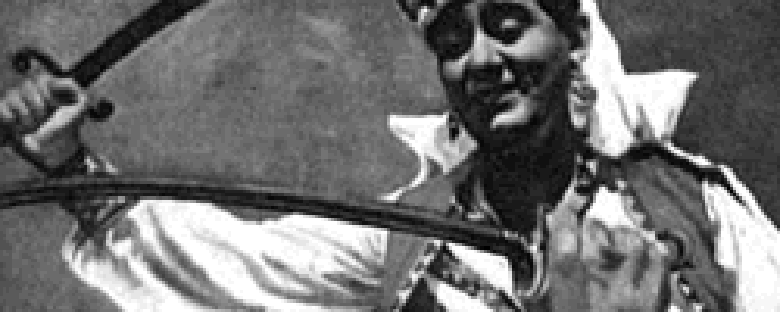Reviews
Lo Sceicco Blanco
Federico Fellini
Italy, 1952
Credits
Review by Rumsey Taylor
Posted on 11 July 2004
Source The Criterion Collection DVD
Nino Rotta’s cherubic, varied score accompanies Fedrico Fellini’s The White Sheik with intrinsic semblance. The rousing, and, of course, circus-like music satisfies the film’s agenda for blending reality with fantasy. Such as in La Strada and Nights of Cabiria, in The White Sheik Fellini acknowledges his neo-realist foundation, and displays a capacity for fantasy — in which regard (and in comparison to his later efforts) the film is restrained.
The film begins with a newly wed couple and their arrival in Rome. It is their honeymoon, and their rural heritage allows their awed impression. In the liner notes for Criterion’s DVD of The White Sheik, Fellini admits his outsider fondness of the city. Viewing the initial scene, one imagines that the characters have inherited their director’s impression.
The recently married pair is characteristically different: Ivan darts about each location with urgent and nervous priority. His wife Wanda is extremely placid. In her first few scenes her position and countenance remain unbroken, unmoved. Their celebration has little, if any, intimacy, and is stifled by their trip’s ancillary purpose: Ivan must introduce Wanda to his aristocratic relatives, and the entire group will see the pope. Wanda’s introduction is the priority for this honeymoon.
One of Wanda’s inhibited motives in the trip is to meet the White Sheik, star of a photographic comic strip produced in Rome. She is a fan, has drawn incredible likenesses of him, and is so obsessively familiar with the serial that, upon meeting its producers, she contributes a line of dialogue in an upcoming episode. The chance meeting leads inevitably to her meeting with the series’ actors, each of whom (in a Fellini trademark) is largely indistinguishable from their fictional characters. Once she comes upon Rivoli, the likeness behind the titular celebrity, she finds him as impressive and persuasively romantic — an element notably absent in her new husband — as she has imagined. Scooped up and accidentally taken to and employed in a location shoot on a Mediterranean beach, Wanda finds herself immersed in the landscape of the series’ fantasy, and her urgency to find her husband diminishes.
Ivan is, of course, wrought with anxiety, and manages to convince his elders that an unexpected sickness prohibits his wife’s introduction. This scenario provides comic opportunity, yet there is an air of tragedy to the couple’s unexpected separation. Each has their fidelity challenged, and each realizes they have wasted their honeymoon’s traditional obligation.
The White Sheik’s element of fantasy, which is expected with knowledge of its director, is second service to its drama — the recently married couple’s innocence gives way to the realization that marriage can be challenged and broken. The film has the laughs, relative depth, and compact speed of a sitcom (a warranted comparison; notice how Ivan persistently withholds his wife’s disappearance from his family in slapstick fashion), and, expectedly, is diminutive in comparison with Fellini’s later catalogue — which is to say it is dutifully recommended.
We don’t do comments anymore, but you may contact us here or find us on Twitter or Facebook.



